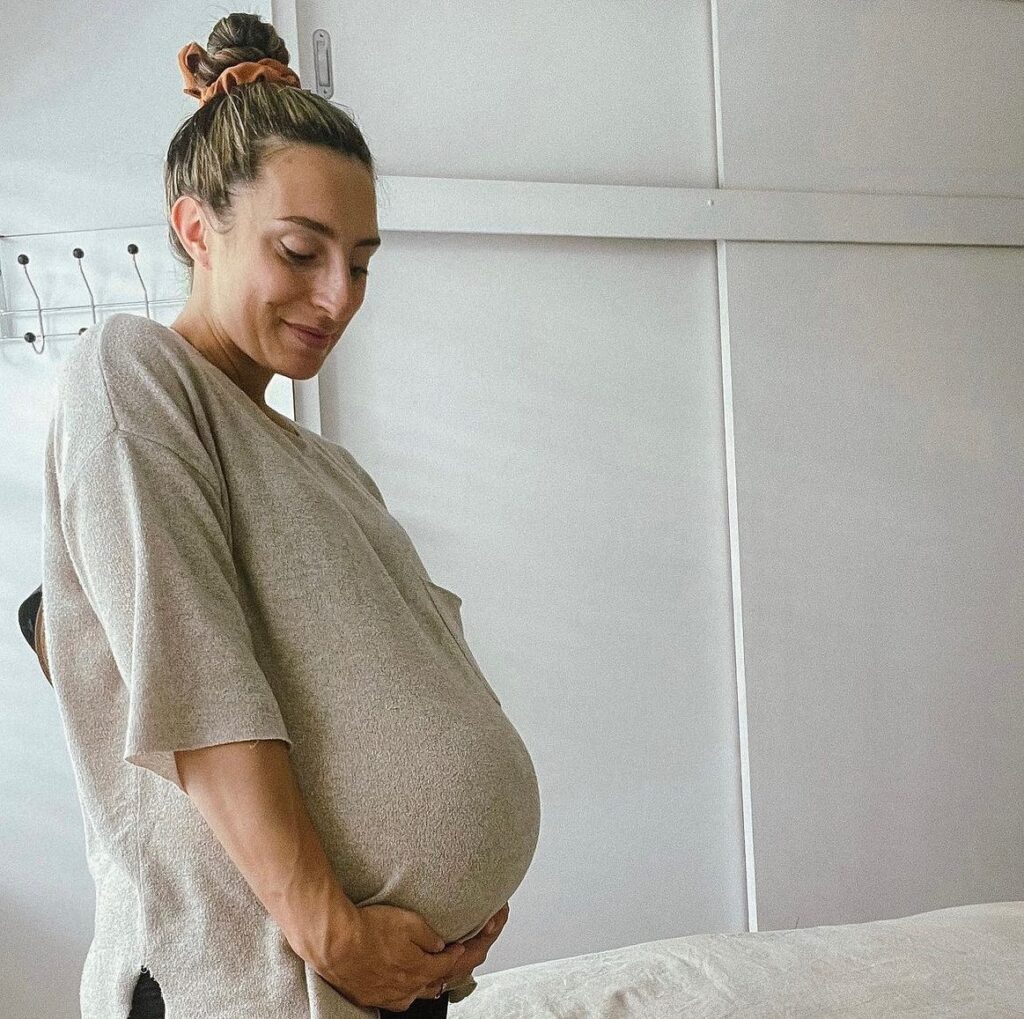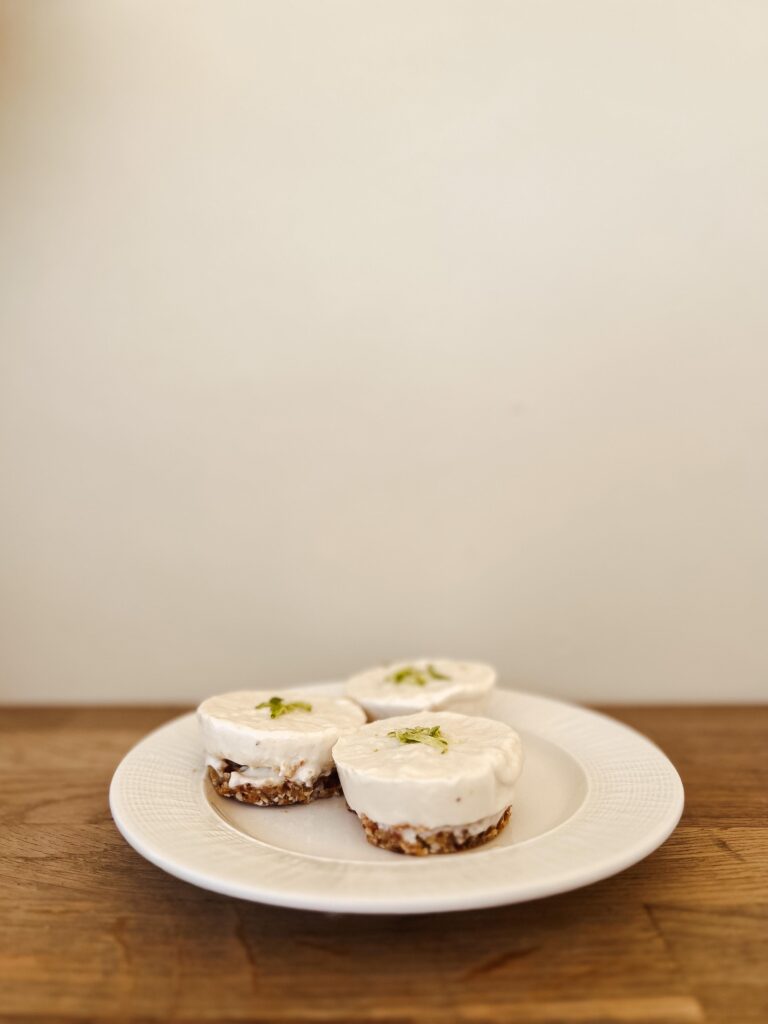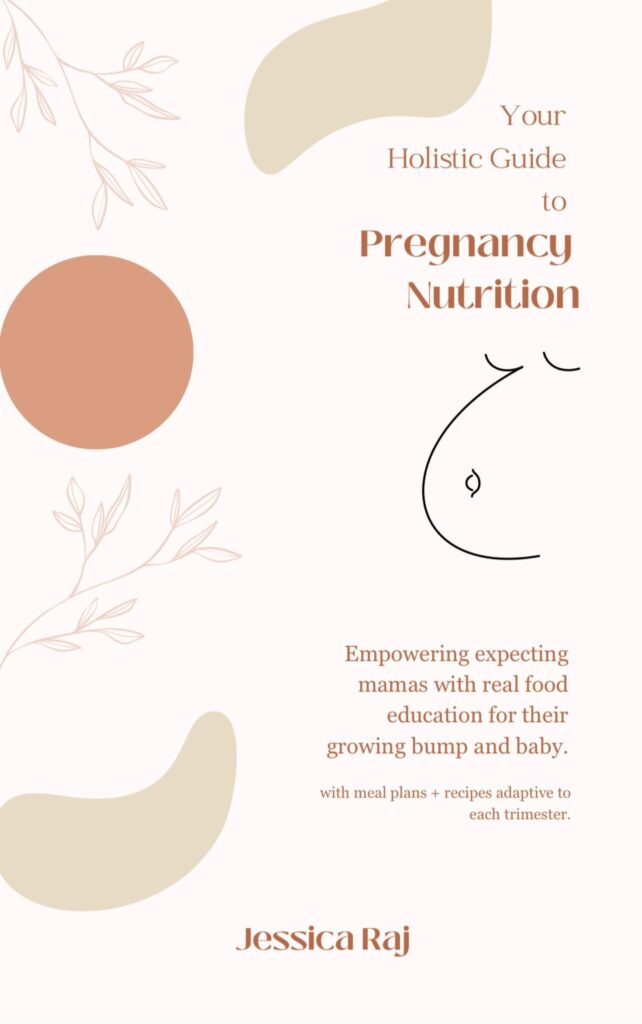I’ll be sharing 10 ways you can naturally treat Group B Streptococcus in pregnancy. I’ve tested positive for GBS (Group B Streptococcus) for two of my pregnancies, so I know a thing or two about how to minimise the risks.

As an Amazon Associate I earn from qualifying purchases. If you purchase an Amazon item from the links below, I earn a small commission at no cost to you. Read more about my T&C’s here.
My GBS stories
Like I said, I tested positive for GBS my first and third pregnancies. Little did I know at the time, was that if you test positive for GBS at the time of the testing does not mean you will test positive for GBS at birth. However, as precaution, when you go into labour, the midwives will likely administer antibiotics to you to minimise the risk of passing it onto your newborn.
I tested positive for GBS for my first pregnancy and because I was induced, I was also given antibiotics for the GBS. At the time, I had no idea about natural ways to minimise the risk. For my third pregnancy, I tested positive for GBS, but I had the knowledge I now have about natural ways to minimise the risk of GBS. Funnily enough, I only made it to the hospital 10 minutes before I gave birth to my son, so no one had the time to administer the antibiotics. Thankfully my son was well and healthy.
I am really passionate about raising awareness for ways to minimise the risk of GBS, because sadly, it is not spoken enough in the mainstream medicine field. You won’t find a pamphlet at your appointment about how to reduce the risk. At least, that has not been my experience.
So before I share 10 ways to minimise the risk of GBS in pregnancy, let’s define what it is…
What is Group B Streptococcus?
Group B Streptococcus (GBS) is a bacterial infection that can be present in a woman’s vagina, rectum and intestines.
About 25% of healthy women carry this bacteria at any given time, sometimes with no symptoms shown (source).
As mentioned, GBS are transient and if a woman tests positive at one time, she may test negative at another.
The risks of GBS in pregnancy
Women who are GBS positive at birth can pass this bacteria infection onto her baby; however, not all babies will become infected.
The risk of infection with or without antibiotic treatment is super low. About 1.2% of newborns develop the infection without the treatment of antibiotics and about 0.2% of newborns develop the infection with the treatment of antibiotics (study).
While most babies who develop the infection are treated with no complications, a very small amount of babies can develop life-threatening sicknesses like pneumonia or meningitis (study).
Because the risks are so low, I advocate for educating women about minimising the risk of GBS rather than unnecessarily administering antibiotics if a woman does not have GBS at the time.
Risk of antibiotics during labour
I wrote a blog all about antibiotics administration during labour and how it disrupts both your and your baby’s microbiome (How to support your gut after antibiotics use during labour). However, let’s look at why antibiotics may pose more harm than good when it comes to treating GBS during labour.
While antibiotics can be helpful in preventing the transmission of GBS from mother to baby during delivery, we have concluded previously that the risk is so minor (about 1.2% of babies without antibiotics contract GBS and 0.2% of babies with antibiotics contract GBS).
Antibiotics lower the beneficial bacteria in breast milk, meaning that this reduces the immunoprotective compounds found in a mother’s milk (source).
Maternal use of antibiotics during pregnancy has been shown to increase a child’s risk of asthma (study).
It also disrupts both the mother’s and baby’s microbiome, which can create negative consequences (like the one above) for the baby’s overall health.
The human microbiome responds well to and is greatly influenced by favourable changes to nutrition and lifestyle. This is great news for women who test positive for GBS in pregnancy, because there are many things you can do now to reduce your risk of testing positive at birth. It’s time for our doctors and midwives to encourage their pregnant patients with this prophylactic approach below!

10 Ways to Naturally Treat Group B Streptococcus
I’ll be sharing 10 ways to naturally treat and reduce the risks of GBS colonisation and support your microbiome (gut) during the third trimester of pregnancy:
- Fermented foods: eating fermented foods regularly, like sauerkraut, kimchi, kefir, plain yoghurt and miso (to name a few) are helpful in diversifying the gut with good bacteria. Make sure to source your fermented foods from a reputable health food store rather than a supermarket aisle or make your own.
- High quality probiotic supplement: supports the growth of healthy flora in the intestinal tract and birth canal. This is especially helpful if you don’t wish to eat fermented foods or don’t eat them regularly (check out my probiotic supplement recommendation here).
- 100% cotton underwear: Cotton underwear is natural and breathable, whereas, fabrics like nylon, lycra and other synthetic fabrics, hold in moisture, encouraging growth of bacteria ( cotton underwear recommendation).
- Raw apple cider vinegar: contains organic acetic vinegar, which prevents growth of bacteria. Take 1/2 teaspoon before meals.
- Coconut oil: which contains antibacterial/antiviral properties. Consume 2+ tablespoons or insert into the vagina by coating a tampon with it.
- Low sugar diet: sugar encourages pathogenic bacteria growth, especially white sugar and refined flours. So consider reducing consuming high sugar foods and stick to naturally sweet foods like fruit.
An elimination protocol for those who have tested positive for GBS (which can be done in tandem with the tips above):
7. Raw garlic: garlic has antibacterial properties. You can eat a few cloves of minced garlic on its own each day or can be inserted vaginally (the clove should be cut open and inserted at night to be effective).
8. Raw apple cider vinegar sitz bath or rinse: you can rinse with apple cider vinegar daily or pour 1/4 cup of apple cider vinegar into a shallow bath or sitz three times a week.
9. Vitamin C: women who test positive for GBS should take extra care to consume Vitamin C daily (1000mg split in two doses daily).
10. Reducing risk in labour: sadly, vaginal exams, internal fetal monitoring, membrane stripping/sweeping, artificial membrane rupture or the application of cervical ripeners can increase the risk of infection and encourage upward movement of pathogenic bacteria. You have the right to decline these options if it is safe/you see fit to do so.
If you are interested in learning more about pregnancy health, then I have written a book all about holistic pregnancy nutrition. Grab your copy here (available as an e-book or paperback).

More on the blog
A day in the life of our Australian homeschooling family
20 Best foods to eat for postpartum recovery
How to support your gut after antibiotics use during labour
If you have tested positive for GBS during pregnancy, were you aware of this prophylactic approach to reducing GBS risk at birth?
Leave a Reply